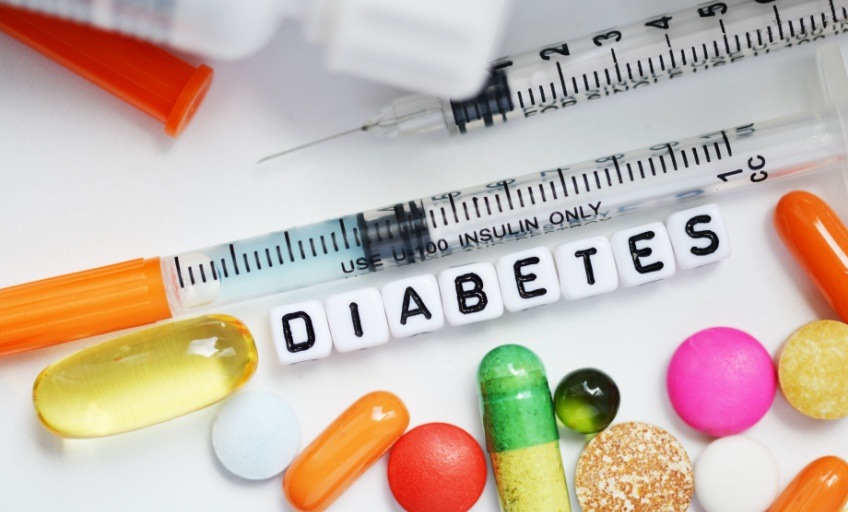Imagine being unable to sweat due to the damage diabetes causes to the sweat glands. Dehydration and elevated blood sugar levels are difficult to manage for people with diabetes in this scorching heat. However, you must fight with the tools you have and learn to manage diabetes in extreme heat and during heat waves.
What you need to know:
How does hot weather affect your diabetes?

The usual problems people with diabetes experience due to heat are:
- The body’s inability to cool effectively.
- Getting dehydrated quickly.
- Change in the way the body uses insulin.
Hot ambient temperatures have a profound impact on your diabetes. Sometimes, fatigue and loss of appetite may result from the heat affecting your condition. The same goes for dehydration. When heat exposure increases, the body regulates blood flow to the skin and increases sweat secretion. This involves a high degree of cardiac function.
Dehydration and damage to the sweat glands due to diabetes can prevent the body from cooling down. People with diabetes have demonstrated that dehydration and high temperatures can impair sweating and blood flow to the skin, which can cause local skin heating. Heat stress can increase the chances of cardiovascular diseases and chronic kidney disease. High cardiac involvement due to a rise in temperature increases the chances of heart attacks and strokes in patients with existing cardiovascular conditions. Additionally, people with diabetes and patients with hypertension are known to use diuretics. This increases the chances of dehydration.
The usage of more energy to cool the body down and maintain other functions can easily cause a state of hypoglycemia in people with diabetes. And a lack of sweating can easily result in heat exhaustion. People with diabetes are at a greater risk of heat exhaustion and hypoglycemia due to their condition, and these problems usually show up with similar symptoms:
- Dizziness
- Sudden excessive sweating
- Extreme hunger
- Blurry vision
- Fatigue or lethargy
- Irritability
- Vomiting
- Stomach cramps
Look out for these symptoms to avoid confusion and severe consequences, especially if you have diabetes.
Managing diabetes during summers
The summers can ruin your routine and diabetes management plan due to our record temperatures. Erratic glucose levels, fatigue, and high body temperature can all be a hindrance to maintaining a healthy way to live with diabetes. However, simple steps can prove to be effective in tackling this problem:
- Hydration


Drink lots of water and fluids. It should be part of the routine, even if you aren’t thirsty, especially if you plan to remain outdoors.
- No caffeine or alcohol
Avoid caffeine and alcoholic beverages. Caffeinated and alcoholic beverages can raise the body temperature and dehydrate you. So, it’s better to have drinks that maintain your electrolyte balance and hydration.
- Appropriate clothing
Wear light and loose summer clothing to keep your skin happy and the body cool.
- Continuously monitoring blood glucose levels.
Continuous glucose monitoring is necessary for people with diabetes and is crucial when temperatures are soaring. It lets you know if your blood glucose levels are within the normal range and whether you need to change your inulin dosage. Continuous monitoring is necessary since heat can rapidly change your blood glucose levels.
- Avoiding heat and heat exhaustion
Stay away from the heat and exhaustion as much as you can. When outside, try to stay in the shade whenever you can. If you exercise to manage your diabetes, do so at a pleasant time, like early morning or late evening.
- Medication and storage
Being disciplined with your medication is a must. This not only means taking medicines on time but also storing them properly. You must store your medicines and insulin in places within the recommended storage temperatures. This includes your insulin pump, blood glucose monitor, and other equipment.
Heat and heat waves are challenging for a person with diabetes. Your job is to combat the heat and make your life easier. Simple steps can improve your quality of life!
Stay tuned to the Activ Living Community. Stay updated with the latest health tips and trends through expert videos, podcasts, articles, and much more on nutrition, fitness, mindfulness, and lifestyle conditions like Asthma, high Blood Pressure, Cholesterol, and Diabetes. Activ Living ke saath sahi sehat ki shuruaat ABHIkaro.
You may also be interested in the following blogs:
- How Do Summer Heat And Humidity Affect Your Blood Pressure?
- 6 Water-Rich Foods That Can Help You Surf The Heatwave
Popular Searches
How to lower blood pressure | Fruits good for liver | Unhealthy foods | Ragi Benefits | Basal Metabolic Rate | Acupressure points for High Blood Pressure | Ayurvedic medicine for blood pressure | How to control cholesterol at home | Homeopathy for Asthma | Biological Age | Home remedies for TB | Natural beta blockers | Negative effects of internet | Types of walking | Blood pressure calculator | Blood sugar calculator | BMI Calculator












